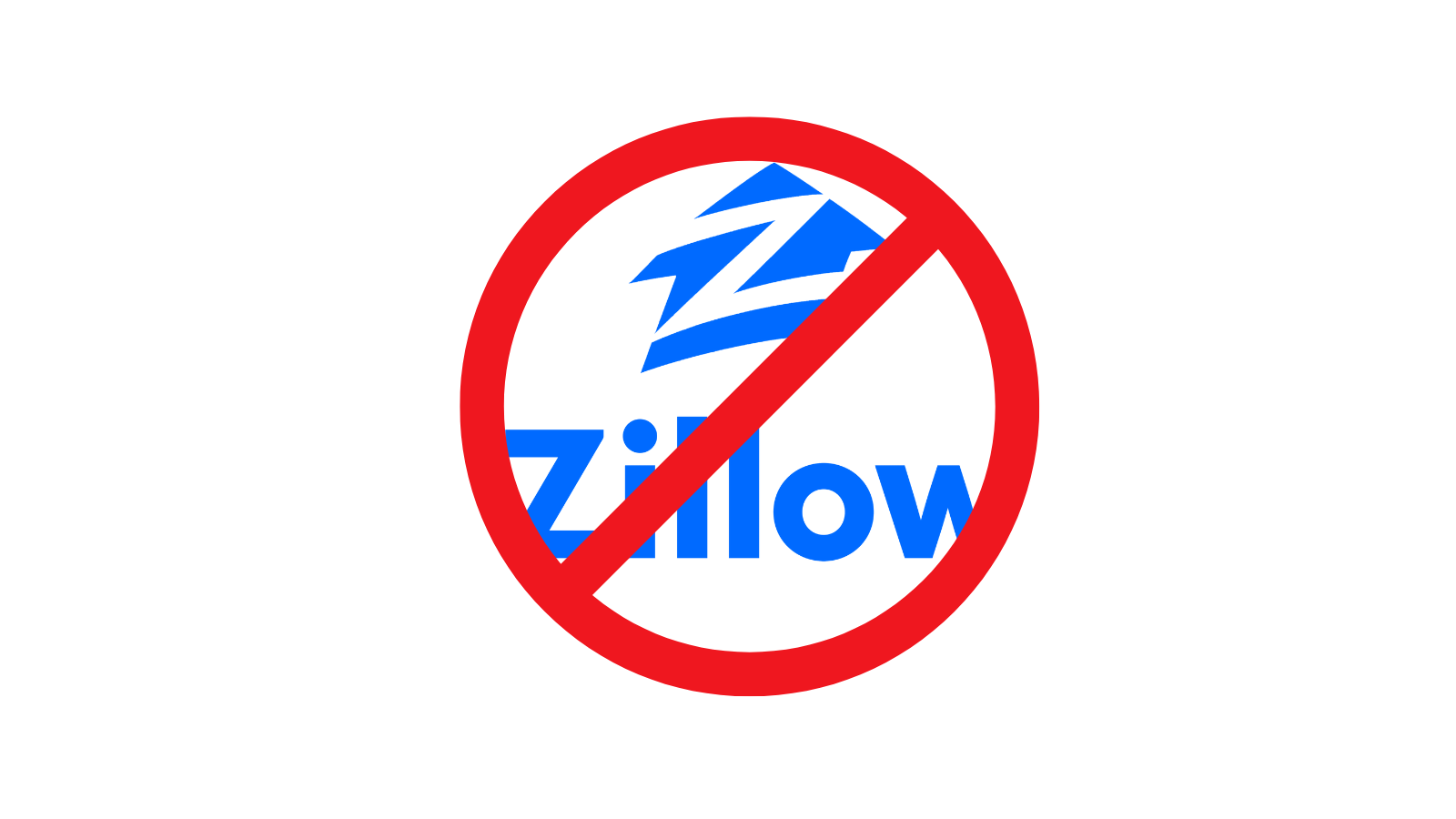Zillow’s Listing Access Standards, implemented to enforce transparency by requiring listings publicly marketed to any buyer to be entered into a Multiple Listing Service (MLS) within one business day and published on Zillow and other platforms, have sparked significant debate. Critics argue these standards, while framed as pro-consumer, raise several concerns about control, fairness, and market dynamics. Below are the key arguments against Zillow’s policy, drawn from industry perspectives and analyses:
Supporters of Zillow’s policy, including brokerages like eXp Realty, NextHome, and West USA Realty, argue it aligns with the NAR’s Clear Cooperation Policy and promotes fairness by ensuring all buyers have access to listings. They cite Zillow’s data showing that off-MLS listings often sell for less and may disproportionately harm communities of color. Consumer groups like the Consumer Policy Center also back the policy, arguing private networks limit transparency and enable manipulative practices.
However, the opposition emphasizes that Zillow’s one-size-fits-all approach fails to account for diverse seller needs and market realities, particularly in niche segments like luxury real estate. The debate reflects broader tensions in the industry over transparency versus flexibility, with Zillow’s dominant market position (attracting 64% of listing app traffic) amplifying concerns about its influence.
Conclusion
The arguments against Zillow’s Listing Access Standards center on their perceived overreach, restriction of seller and agent autonomy, and potential to disrupt rather than unify the real estate market. Critics see the policy as a strategic move to maintain Zillow’s dominance, at the expense of flexibility and innovation in how listings are marketed. While Zillow’s goal of transparency resonates with some, the policy’s rigid enforcement and conflict with NAR’s more flexible guidelines fuel concerns about its long-term impact on consumers, agents, and the industry as a whole.
- Restriction of Seller Choice and Privacy:
- Critics argue that Zillow’s standards limit sellers’ autonomy to choose how and where their properties are marketed. Some sellers, particularly in luxury or high-profile markets, prefer private or “off-market” listings to maintain privacy, test pricing, or avoid market stigma from price reductions or prolonged listing periods.
- Compass CEO Robert Reffkin has defended private listings, asserting they offer sellers greater control and can sometimes yield higher prices by targeting exclusive networks. Zillow’s policy effectively bans such strategies if the listing is publicly marketed, potentially alienating sellers who value discretion.
- Power Play and Market Control:
- Many view Zillow’s policy as an attempt to consolidate control over the real estate marketplace rather than a genuine push for fairness. By requiring listings to be on the MLS and Zillow within 24 hours of public marketing, Zillow ensures it remains the central hub for listings, potentially sidelining competitors like Homes.com or brokerages with private networks.
- Andy Florance, CEO of CoStar (Homes.com’s parent company), called Zillow’s move a “power play of epic proportions,” arguing it prioritizes Zillow’s ability to profit from lead generation over the interests of agents, brokerages, or homeowners.
- Real estate coach Darryl Davis contends that Zillow is entering a phase of “replacing professionals” by dictating marketing rules, citing its acquisitions (e.g., ShowingTime, Dotloop) and past ventures into iBuying and direct transactions as evidence of overreach.
- Conflict with NAR’s Flexible Policies:
- Zillow’s standards clash with the National Association of Realtors’ (NAR) “Multiple Listing Options for Sellers” policy, which allows delayed marketing exempt listings to be kept off Internet Data Exchange (IDX) feeds temporarily. Critics argue Zillow’s stricter requirements punish agents and sellers who follow NAR’s legal guidelines but delay IDX syndication, effectively overriding industry standards.
- This discrepancy creates a scenario where a listing compliant with NAR rules could still be permanently banned from Zillow, which critics see as Zillow imposing its own rules over the industry.
- Potential Harm to Consumers:
- While Zillow claims its policy protects consumers by ensuring equal access, critics argue it may confuse or disadvantage them. Buyers may need to search multiple platforms to find all available listings, as agents opting for private marketing will be excluded from Zillow, fragmenting inventory.
- Sellers might face pressure to list on the MLS immediately, even if a phased marketing strategy (e.g., Compass’s “Coming Soon” approach) could attract better offers. Critics cite Compass’s research suggesting private listings can yield higher prices, though this is contested by Zillow’s data.
- The policy could disproportionately affect first-time buyers or lower-income groups if agents prioritize private networks to avoid Zillow’s restrictions, limiting access to certain listings.
- Punitive Enforcement and Lack of Flexibility:
- Zillow’s enforcement—banning non-compliant listings for the life of the listing agreement and blocking agents from tools like Zillow Premier Agent or StreetEasy programs after repeated violations—is seen as overly harsh. Starting June 30, 2025, an agent’s third non-compliant listing triggers a ban, with no grace period for correction.
- Critics argue this approach penalizes agents for legitimate marketing strategies, such as “office exclusives” or “Coming Soon” listings, even if they intend to list on the MLS shortly after.
- Encouragement of Private Listing Networks:
- Ironically, some argue Zillow’s policy could incentivize brokerages to double down on private listing networks. By banning listings that don’t meet its standards, Zillow may push agents to keep listings entirely off public platforms, reducing transparency rather than enhancing it.
- Large brokerages like Compass, Douglas Elliman, and Corcoran, which have teased private networks, could gain leverage by offering exclusive inventory that avoids Zillow altogether, potentially fragmenting the market further.
- Undermining Agent and Brokerage Autonomy:
- The policy is criticized for diminishing the role of agents and brokerages in crafting tailored marketing strategies. By mandating immediate MLS entry, Zillow overrides professional judgment about what’s best for a seller’s unique situation.
- Brokerages like Keller Williams, RE/MAX, and Anywhere Real Estate have expressed measured support for transparency but emphasize the importance of preserving seller options, highlighting a tension between Zillow’s rules and agent-driven decision-making.
- Potential Financial Impact on Zillow and Agents:
- If brokerages shift toward private networks to avoid Zillow’s restrictions, Zillow could lose listings, impacting its revenue from lead generation and advertising. This could also reduce agents’ visibility on Zillow, affecting their ability to attract clients.
- Critics argue Zillow’s aggressive stance risks alienating the very agents and brokerages it relies on, potentially driving them to competitors like Homes.com, which has positioned itself as more welcoming to private listings.
Supporters of Zillow’s policy, including brokerages like eXp Realty, NextHome, and West USA Realty, argue it aligns with the NAR’s Clear Cooperation Policy and promotes fairness by ensuring all buyers have access to listings. They cite Zillow’s data showing that off-MLS listings often sell for less and may disproportionately harm communities of color. Consumer groups like the Consumer Policy Center also back the policy, arguing private networks limit transparency and enable manipulative practices.
However, the opposition emphasizes that Zillow’s one-size-fits-all approach fails to account for diverse seller needs and market realities, particularly in niche segments like luxury real estate. The debate reflects broader tensions in the industry over transparency versus flexibility, with Zillow’s dominant market position (attracting 64% of listing app traffic) amplifying concerns about its influence.
Conclusion
The arguments against Zillow’s Listing Access Standards center on their perceived overreach, restriction of seller and agent autonomy, and potential to disrupt rather than unify the real estate market. Critics see the policy as a strategic move to maintain Zillow’s dominance, at the expense of flexibility and innovation in how listings are marketed. While Zillow’s goal of transparency resonates with some, the policy’s rigid enforcement and conflict with NAR’s more flexible guidelines fuel concerns about its long-term impact on consumers, agents, and the industry as a whole.
We would like to hear from you! If you have any questions, please do not hesitate to contact us. We are always looking forward to hearing from you! We will do our best to reply to you within 24 hours !

